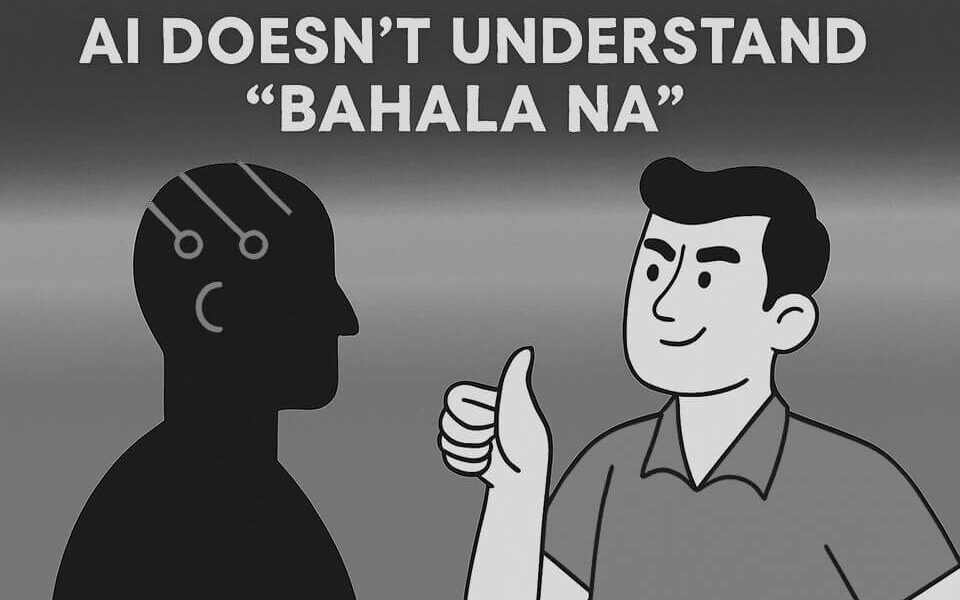AI thrives on certainty. It wants clean prompts, structured data, and predictable outcomes. It’s trained to optimize, forecast, and automate. But there’s one thing it still can’t compute: “Bahala na.”
To outsiders, “bahala na” sounds like giving up. To us, it’s a quiet form of courage. It’s what we say when the plan is blurry, the odds are stacked, and the deadline is tomorrow—but we show up anyway. And in the Age of AI, that mindset might just be our most underrated superpower.
Certainty vs. Courage
AI systems are built to reduce uncertainty. They analyze patterns, predict behavior, and recommend actions based on probability. Brilliant—until the situation gets messy.
Filipinos, on the other hand, are fluent in mess. We improvise. We adapt. We laugh through it. We say “bahala na” not because we don’t care, but because we trust ourselves to figure it out. It’s not fatalism—it’s flexibility.
When “Bahala Na” Outruns Optimization
Here’s the irony: AI struggles with ambiguity. It needs structure. It needs benchmarks. It needs to know what “success” looks like.
But life doesn’t always follow a prompt. Especially not in the Philippines.
- A student writes a thesis with half the sources missing: “Bahala na, I’ll make it work.”
- A vendor launches a new product with zero marketing budget: “Bahala na, let’s try.”
- A creator posts content without studying the algorithm: “Bahala na, basta totoo.”
And somehow, it works. Not because of blind luck—but because of lived wisdom, relational intelligence, and quiet resilience.
Too Cryptic? Explain Like I’m 12
Imagine you’re playing a game and you don’t know what’s coming next. AI says, “Wait until you have all the data.” You say, “Bahala na, let’s go.”
That’s the difference. AI freezes. Humans move.
What AI Still Can’t Predict
Sure, AI can simulate empathy. It can mimic humor. It can even generate “Filipino-style” captions. But it still can’t:
- Read the room
- Feel the tension
- Know when to push or pause
- Understand why “bahala na” is sometimes the smartest move
Because “bahala na” isn’t the absence of planning. It’s the refusal to be paralyzed by uncertainty.
Filipino Diskarte in the Age of AI
As AI tools grow more powerful, the temptation is to let them lead. But leadership isn’t just about precision—it’s about presence. And Filipino creators, OFWs, and micro-entrepreneurs know how to show up even when the path isn’t clear.
So while AI calculates, we improvise. While it predicts, we pivot. While it hesitates, we say “bahala na”—and move.
Final Thought: Ambiguity Is Not a Bug
AI wants control. Filipinos bring courage.
And in a world obsessed with optimization, “bahala na” is a quiet rebellion. It reminds us that not everything can be predicted, and not everything should be.
So the next time your AI tool freezes, overthinks, or begs for more data—just smile. You’ve already made the move.







